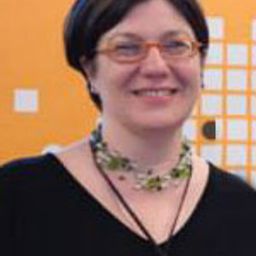11.30 Community Connections and Ruptures through Memory: Grassroots Memorials as Affective Mechanisms in the City of Athens, Greece
My Session Status
Culture and memory are societal connecting threads; they are used to forge links among communities, to interpret and promote their ideas, character, and values. The aspects and perspectives of culture, the past events and moments of history that communities choose to highlight—or silence—are telling signs of the ways their members think of themselves, think of their past but also of their present and future, and try to create their collective selves. But, communities are multiple, political, and complex. And so are their choices.
In this paper, I will focus on the city of Athens and a series of grassroots memorials created by different (political) communities of the city at the aftermath of traumatic, in many senses, events that took place between 2008 and 2012: the arson of a branch of Marfin Bank in the centre of the city (5/5/2010) that cost four human lives; the corner of Tzavela and Metsovou streets in the Exarcheia neighbourhood where Alexis Grigoropoulos, a 15-year-old boy, was murdered (8-12-2008); the neoclassical building of Ernst Ziller, also home to two historical movie theatres, that was burned down during a most violent night (12/2/2012); the corner of Epirou and September 3rd streets, where a young father, Manolis Kantaris, was murdered for a video camera ( 11/5/2011). Despite differences in the dates, meanings, and framework of the events, the sites where they happened went through, and are going through, a particular process of “musealization.” Not only have they become the new “sites” of the city for political thinking and for community forging, but they even seem to attract their own tourists, who often search for them in their quest for “worth visiting and photographing” parts of Athens. They can be understood as “affective mechanisms” politically deployed and actively engineered to introduce a new way of thinking about communal heritage and the past, but also a new “urban geography.”
These memorials are expressions of a different understanding of history, of communities’ search for alternative forms of memorialization, and of participation in the creation of communal memory and history. Their efforts have led to a different appropriation of the city, at least in terms of monuments and the memories they evoke. If different—in terms of meaning and form—parts of the city are considered worthy of attention, of “musealization,” this is because more people demand a more active role in the creation of the common (monumental) historical narrative, which in turn means that new memorial sites and a different way of understanding living in the city are brought forward. In addition, the fact that a city usually commemorated for glorious and celebratory reasons (classical past, deserving moments, ideas, and people) and places now acquires by its own citizens its dark memorials, its traumatic for the communal memory (subconscious) sites is worth studying and analyzing; so is the fact that at the same time a multi-vocal, anti-conventional, proactive history and memorialization processes are in the making. These are all issues that will be discussed in this paper, as cultural and memorial practices necessary for communities’ development and growth.
